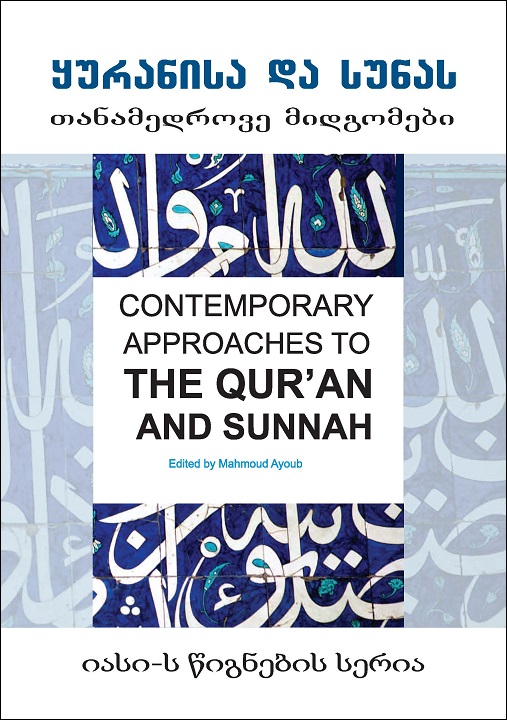
The Qur’an and Sunnah are the two primary sources of Muslim faith, life, law and morality. The Qur’an is for Muslims the foundation of their faith and the Sunnah is the framework of their morality. Together they constitute the two sources of the law (Shari’ah) of God, a guide to prosperity and happiness in this life and to the bliss of the hereafter. Although the Qur’an and Sunnah are materially and formally two independent sources, they are inextricably bound in a dynamic relationship. The rulings and precepts (ahkam) of the Qur’an constitute the law (shar’) of God. They are supplemented by the precepts of the authentic Sunnah, which possess authority second only to the precepts of the Qur’an. The Qur’an commands Muslims, “Whatever the Messenger gives you, that you must take, and whatever he forbids you, you must desist therefrom....” (59:7). Mahmoud M. Ayoub is currently Faculty Associate in Shi’ite Islam and Christian-Muslim Relations and Co-Director of the Macdonald Center for the Study of Islam and Christian-Muslim Relations at Hartford Seminary. Ayoub is also a visiting professor at University of Balamand (Lebanon) and editorial consultant for the Oxford Dictionary of Islam. From 1988 to 2008 Ayoub was a Professor and director of Islamic Studies in the Department of Religion at Temple University. His publications include The Crisis of Muslim History: Religion and Politics in Early Islam (2005), Islam: Faith and History (2004), and The Qur’an and Its Interpreters, vol. 1-2 (1984/1992), as well as numerous articles and book chapters. Born in South Lebanon, Ayoub earned a BA at the American University of Beirut, MA at the University of Pennsylvania, and PhD at Harvard University. He is also a Professor Emeritus at Temple University, USA.
Paperback : ISBN 978-9941-33-222-7 eBook : ISBN 978-1-64205-677-8 Google Play / Google Books Size/pages/year : (6x9) / 66 p. / 2022
